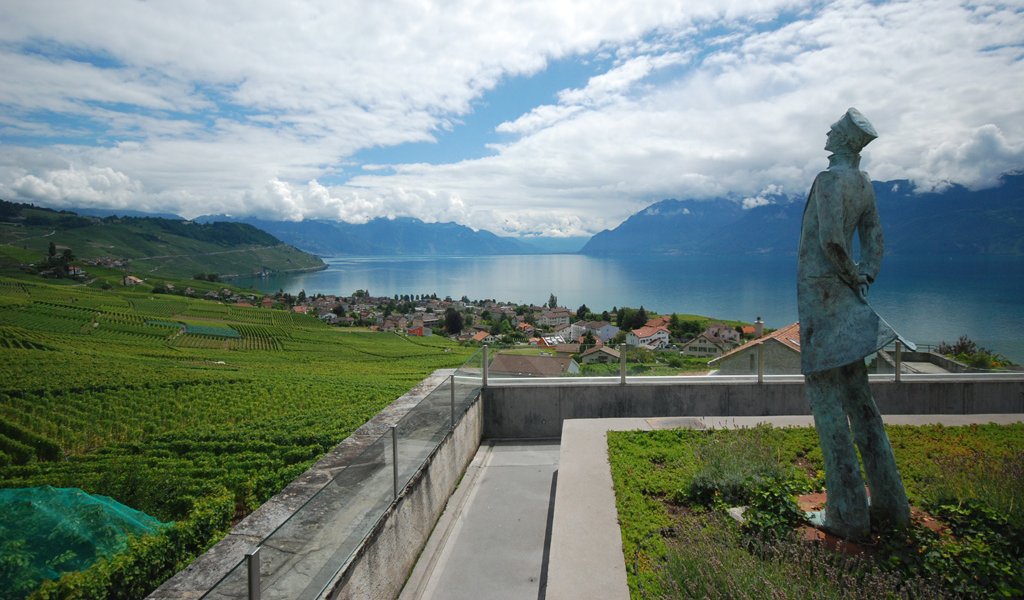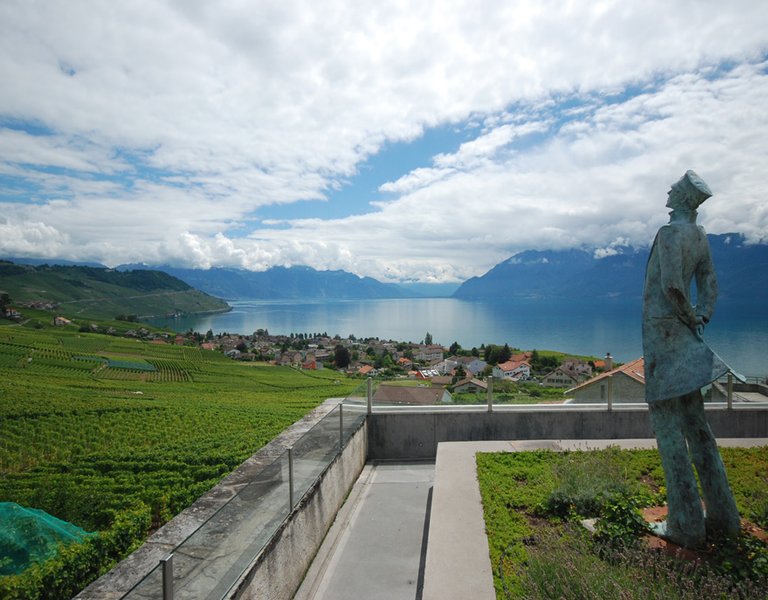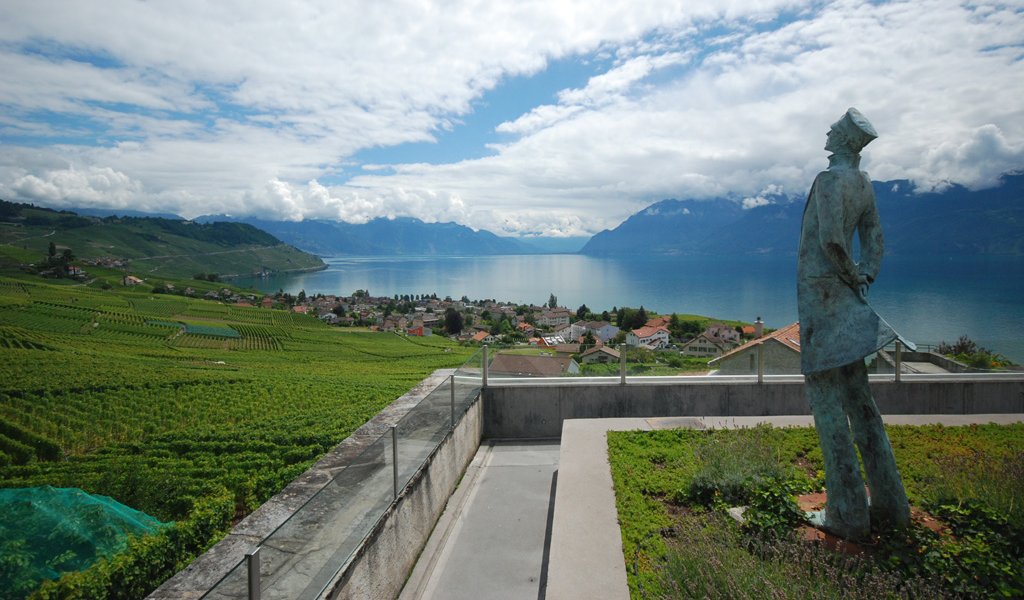Enchanted Corto
130 years ago, on 10 July 1887, Corto Maltese was born. He was the protagonist of a series of comic books created by an Italian draughtsman Hugo Pratt.
Can we celebrate the birthday of a comic book character? Of course we can, if it is an exceptional character, a symbol of 1970s Western pop-culture on a par with the photographs of Helmuth Newton or the creations of Yves Saint-Laurent.
Hugo Pratt’s epic work has been translated into dozens of languages but remains relatively unknown in Poland. On the banks of the Vistula it has yet to attract readers’ interest. Perhaps Corto Maltese arrived here too late, when the comic book’s heyday in the West had already subsided. Hugo Pratt’s comic books may have been somewhat too sophisticated to appeal to the mass reader’s taste. And yet, there is something enchanting about them, even 40 years after their first release. Hugo Pratt managed to successfully capture the last days of the colonial world of the beginning of the 20th century and the arrival of the rebellion of the peoples of the Third World.
But the adventures of a Maltese sailor set against the background of this fascinating era would not be so fascinating, had Pratt not combined the adventure-filled content with refined poetic climes.
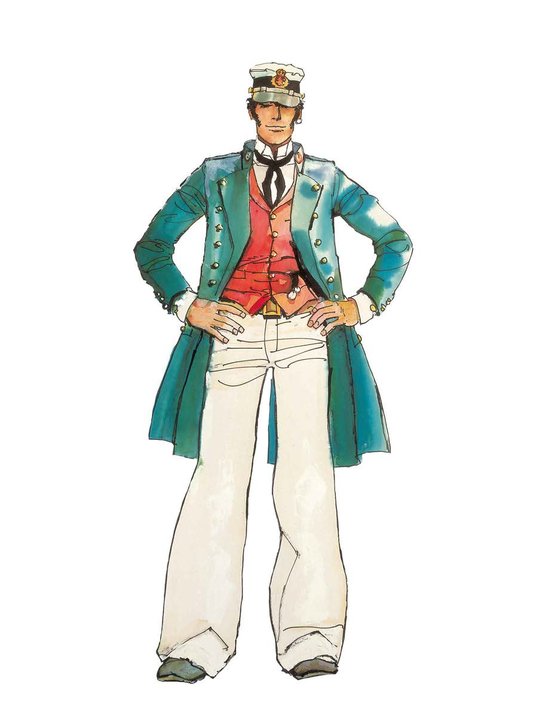 A Hero from a dream
A Hero from a dream
Who is Corto Maltese? “He is an adventure-seeker, a dreamer, a man whose life is incessantly suspended between a dream and reality,” we learn from the cover of a comic book of his adventures. In turn, the official Corto fan page reads: “He is a traveller-sailor who, as the son of an Andalusian Gypsy and a British sailor, combines within himself the Mediterranean soul with the Anglo-Saxon culture.”
Corto is a Spanish word meaning “fast”, and Maltese is a person from Malta. A “Fast Maltese”? Why? Nobody knows, but in the mysterious world of Hugo Pratt not everything must be ruled by logic. “Corto is an anti-hero who puts his freedom and his right to follow his imagination above riches. He is a contemporary Ulysses, who takes us on voyages to the most fascinating places on earth,” his fans write.
Clad in an attire of a dandy, in the somewhat old-fashioned, but impeccably trimmed uniform of a 19th century British colonial fleet officer—with elegant sideburns and sporting an earring—he seduces not only with his courage, but also with his idiosyncratic English humour.
The world first got to know the dreamy daredevil in a 1967 comic book titled The Ballad of the Salt Sea. Over the course of the next thirteen years, eleven further comic book volumes came out. The final episode of Corto’s adventures – Mu – was published in 1980. The comic books about the Maltese gentleman swashbuckler proved too sophisticated for mass pop-culture. They became stuck somewhere between adventure novels in the style of the inter-war period and the ambitious literature of magic realism.
Does having four grandparents from different cultural areas expand the imagination? Hugo Pratt hails from a family where influences of various traditions met one another.
His grandfather on the father’s side was of English origin. The grandfather’s brother was the well-known horror film actor Boris Karloff (his real name was William Henry Pratt). His grandfather on the mother’s side was a Jew; a marran with Spanish roots. His grandmother on the mother’s side was also Jewish but with Turkish roots. Hugo himself was born in 1927 in Rimini, Italy, but it was Venice, which he visited to see his grandmother, that he considered to be his hometown.
“I was four, five, perhaps six years old when, at her request, I began to accompany my grandma on her visits to the Old Ghetto in Venice. We would visit one of Grandma’s old friends, Ms. Bora Levi, who lived in an old house. [...] While there I would walk up to the kitchen window and look down on the grassy yard and stone casing of the well overgrown with ivy. It was called the Arcane Secret Court. To enter it, you had to open seven doors. On each of the doors a name of one of the demons from the Shedim caste had been engraved [...]. One day, Ms. Bora Levi took me by the hand and led me to the secret courtyard. She lit the way with a menorah. Each time she opened one of the doors, she would blow off one of the candles.” These memories from Hugo Pratt’s childhood themselves are reminiscent of Alice's Adventures in Wonderland...
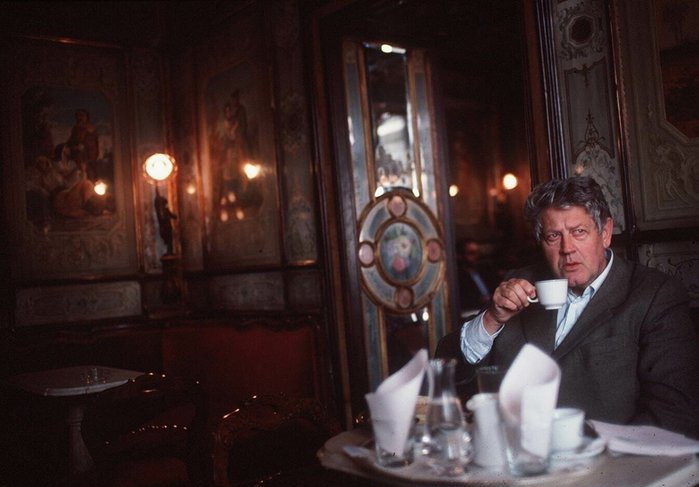 An extraordinary character
An extraordinary character
Pratt’s father was a professional officer in the Italian army. When, in 1936, Mussolini launched a campaign to conquer Abyssinia, he was sent with his entire family to a garrison in this new colonial province of Italy. In 1941, Rolando Pratt was taken captive by the British and he died in captivity a year later. Hugo and his mother were detained in an internment camp in Dire Daua, where he would buy comic books from camp guards. Next, through Red Cross mediation, they were sent back to Italy. In 1944, 17-year-old Hugo was forced into the German river police auxiliary service. According to his account, his mate from the guerrilla helped him run away from the Germans and reach the Americans, for whom he later worked as an interpreter.
In 1945, as a young man, he began studying at the Academy of Fine Arts in Venice. He simultaneously earned extra money as a comic strip illustrator. The success of his drawings published in the Asso di Piche magazine resulted in an invitation from an Argentinean publishing house which, thanks to Pratt, conquered the local comic book market.
In 1959, Hugo returned to Europe, hailed as the Last Mohican of the adventure comic book, which at that time did not enjoy much prestige.
The Corto Maltese series became proof of a chance for the rebirth of the genre if somebody had an idea for an extraordinary character. It lived to see this genre bloom in France and Italy; no longer in the form of cheap brochures printed on poor quality paper, but published as elegant albums in lacquered hard covers. Corto’s success in France resulted, in 1970, in Hugo Pratt moving to live on the banks of the Seine. He became famous and could afford exotic trips to Patagonia, Africa, and the Pacific region, providing the fuel for his imagination.
In 1984, he settled down in Switzerland where he died eleven years later. Soon after his passing, ambitious film adaptations of the Maltese sailor’s adventures were produced: Pascal Morelli’s The Arcane Secret Court and Corto Maltese in Siberia. However, Pratt’s influence on the pop-culture reaches much deeper. Even Frank Miller, the master of a comic-book film and the director of Sin City, dedicated his work to Pratt.
The knight errant of the seas
Let us, however, return to the figure of Corto Maltese. Hugo Pratt contrived this character combining all the traditions he could remember from his childhood.
Corto is born in La Valetta, the capital city of Malta and a British Royal Navy base in the Mediterranean. It comes as no surprise then that his father is a British sailor from Cornwall. Tintagel, the place of Corto’s father’s origin is itself steeped in the world of legends: after all, it was here, according to myths, that King Gorlois’ castle was meant to stand and where King Arthur was born. It was here that Merlin the Mage schooled young Arthur in the knightly code.
As Pratt would have it, Corto’s mother is La Niña de Gibraltar, a Gypsy from Seville who came from British-held Gibraltar and, according to Pratt, posed as a model for none other than Ingres, the master of the paintbrush. Little Corto spent the first six years of his life in Gibraltar, then in a Jewish quarter of Cordoba. It is there that rabbi Exra Toledano won over Niña’s feminine charms. Corto owes his fascination with the Jewish Cabbala and esotericism to rabbi Ezra. In January 1904, 17-year-old Corto, as a sailor of the Golden Vanity, embarked on his first great sea voyage through Egypt, Aden, Muscat, to Shanghai. From Shanghai he ventured even further, to Manchuria, already engulfed in the flames of the Russian-Japanese war.
In Mukden (today: Shenyang) he meets Jack London, who has arrived there as a war correspondent. But Corto’s fate is to be much more affected by an encounter with a deserter from the Russian Army, who on account of his similarity to the notorious monk, is nicknamed Rasputin. The Russian robber and ruffian appears in most of the future adventures of the Maltese dandy, at times as a bizarre friend, at times as an antagonist to whom Corto always affords benevolently ironic treatment.
From Manchuria, Corto and Rasputin travel to Africa in the search for gold deposits of Danakil. Then they move to South America where, in Patagonia, they come across a trio of outlawed fugitives from the USA—Butch Cassidy, The Sundance Kid, and Etta Place. In 1907, in the Italian city of Ancona, he meets Russian revolutionary Josef Dzhugashvili, who later becomes known as Stalin. The sailor has huge luck in meeting famous people; a year later, in Trieste, he makes the acquaintance of James Joyce...
In 1913, Corto becomes a pirate in the flotilla of a mysterious ‘Monk’ with whom the German fleet operating in the area of German colonies in New Guinea cooperates. Here Rasputin saves the beautiful Pamela Groovesnore - a daughter of a rich British freighter from Sydney - from the sea. Corto develops a platonic love for her, a feeling the accompanies him for the rest of his days.
In 1918, Corto joins the fight of Arab tribesmen against the Turks, and the very next year, is commissioned by Chinese triads as he sets out to Siberia to intercept Admiral Kolchak’s gold train. During this escapade Corto meets the legendary Baron Ungern von Sternberg. In 1921, our hero returns to his beloved Venice to search for the “Solomon’s Collarbone” - a mythical emerald – and is involved in a clash with Italian fascists. During his sojourn in Switzerland in the 1920s he has the good fortune to meet Herman Hesse and Tamara Lempicki. In The Scorpions of the Desert, unfolding in 1941, an Ethiopian warrior and Maltese’s friend named Cush, says: “Corto seems to have vanished into thin air somewhere during the Spanish civil war.”
Similarly, as in any adventure story, the Corto Maltese series abounds in national stereotypes. Pratt aptly created the character of Rasputin, who has a typically Russian soul with its famed mood swings. At times Rasputin insists on and demands friendship from Corto, at other times he threatens the sailor with death for his rough jokes at the thuggish habits of his companion.
The Siberian adventure episode brims with French stereotypes on the civil war in Russia. There is the crazed Baron Ungern von Sternberg, there is the sadistic ataman of Transbaikalian Cossacks, Grigory Semyonov. There is the White Russian Officer, Nino; honest but deprived of faith in anything. Finally, there is the beautiful but decadent Duchess Marina Seminova.
The Bolsheviks, due to Hugo Pratt having bent his neck to requirements of political correctness, are, generally speaking, not portrayed so badly. When the beautiful Shanghai-Li, a Kuomintang agent who is friendly with the Communists, thinks that Corto was killed and bursts in tears, what reaction does that evoke in the leader of the Mongolian Communists, Suche Bator? Far from chastising her for shedding tears for an imperialist, he limits himself to a tactful statement: “This is your business.”
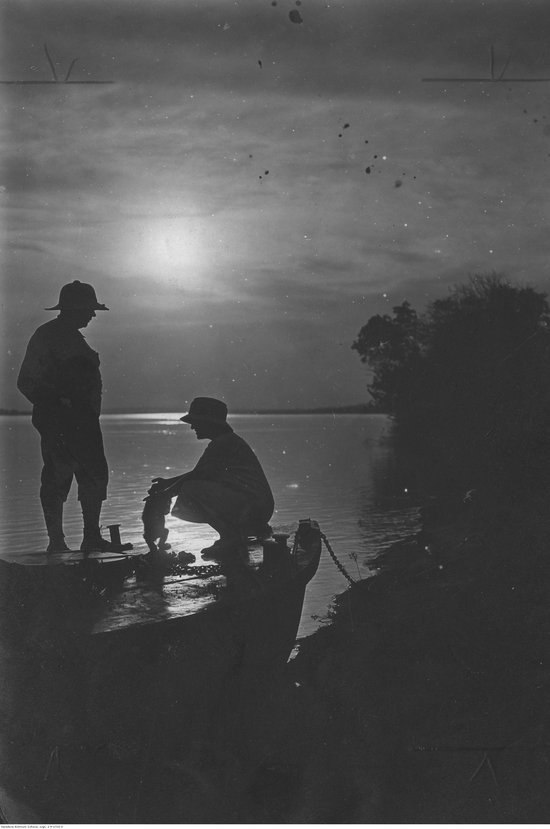 Echoes of the progressive world
Echoes of the progressive world
In the episode The Golden House of Samarkand, captured on the border between Persia and Soviet Russia, Corto is about to be executed by a firing squad as a spy, but he demands the right to phone his old friend from Ancona, comrade Stalin, who is, at that time, serving as the People's Commissar of Nationalities. Referred to as “Joe” in the conversation with Corto, Stalin orders the sailor to be released. The Maltese feels at such ease in the Soviet lands that he even gives his travel companions a letter of recommendation to comrade Frunze, with the aim of protecting them against the distrust of Soviet border patrols.
Corto’s adventures abound in noble natives delivering tirades on the just struggle against colonisers. Influences of progressive fascination with the 1970s struggle of the Third World against imperialists are clearly visible. And that these views and Corto Maltese seem to be as alike as cheese and chalk? Well, that is an entirely different matter altogether.
The leftist accents are easily composed with Hugo Pratt’s ambivalence towards the English. On the one hand, Corto is an archetype of a gentleman-swashbuckler with impeccable English manners. His British passport wins him the respect of the most belligerent warlords. Also, officers of the British colonial police in Pratt’s comic books represent a rigid, yet perfect system for keeping order in the tropical regions. On the other hand, in The Ballad of the Salt Sea, cynical British officers condemn von Slüter, the commander of a German corvette, to death on the false charge of piracy, avenging themselves for the long months of his having successfully led them by the nose all over the Bismarck Sea. Time and again Corto has to face Union Jack martinets, symbolising the soullessness of the British colonial machine. Is this an echo of the resentment reflecting the memory of Hugo Pratt’s father’s untimely demise in British captivity?
The Germans are also not afforded too friendly a treatment in the Corto series. The aforementioned Captain Christian von Slütter, upon receiving an order to change his course, fails to conceal his disappointment: “It is a pity, we are missing a chance to sink the Port Kambla,” a ship full of women and children. When, with a burst of fire from its cannons, the German corvette sinks an innocent Maori boat, even the bloodthirsty Rasputin asks Corto why the Kaiserliche Marine would not let off the boat of natives; the latter replies: “You know what the Germans are like. They haven’t fired a shot in a while. I’d rather stay away from these gun nuts.”
However, the most likeable feature of Corto Maltese’s adventures is his British irony, reminiscent of Chandler’s style or Rick Blaine's characteristic humour in Casablanca.
When asked why he lost his way in a blizzard in Siberia, the Maltese calmly replies: “I always disappear in blizzards; they get the better of me.”
When the sailor in a rather rough manner incapacitates his adversary, who charges him with striking below the belt, Corto politely replies: “You are quite right, but it is you who is down on the ground.”
When another ruffian maliciously indicates “Corto! You loath of crime, but you yourself are a gentleman by accident!”, the Maltese replies with dignity, “Precisely, a gentlemen by accident, not a criminal like you.”
The spirit of Conrad
For the Polish reader the issue of Polish inspirations in the stories of the Maltese sailor is the most interesting. Wearing a British officer’s uniform from the end of the 19th century, Corto evokes associations with Joseph Conrad-Korzeniowski himself, as well as with the protagonists of his novels. One may suspect that Hugo Pratt read our compatriot’s books with gusto. Corto’s first great sea voyage on board of the Golden Vanity took him through the ports of the Orient, which sound familiar to researchers into Conrad’s life: Karachi, Bombay, Hong Kong, Singapore, and Shanghai.
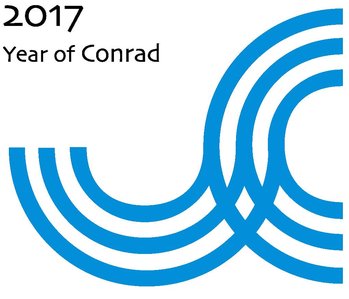 At every step, Corto emphasises his love of freedom. When chance leads him to a Masonic lodge where the hooded master asks him if he is a free mason, Corto ironically replies, “No, more like a free sailor.”
At every step, Corto emphasises his love of freedom. When chance leads him to a Masonic lodge where the hooded master asks him if he is a free mason, Corto ironically replies, “No, more like a free sailor.”
English Wikipedia states that “Corto Maltese's character is based on a famous Polish adventurer, author and explorer, Antoni Ferdynand Ossendowski.” This pertains to the episode entitled Corto Maltese in Siberia containing direct references to Ossendowski’s book Beasts, Men & Gods from which Hugo Pratt borrowed the scene where a Mongolian medicine woman performs a divination for Ungern, as well as monologues of the “crazy baron” recorded by the Polish writer who accompanied him on his journey across the steppe.
As can be seen, no truly dramatic adventure can be put together without the Polish desire for freedom. Few today remember the popularity of Polish novels about exotic Russia were popularised in Italy: book-lovers on the banks of the Tiber voraciously read Lover of the Great Bear by Sergiusz Piasecki. It was also in Italy that, in 1962, a film adaptation of With Fire & Sword was produced. Unfortunately, it was not a masterpiece of cinematography.
Yet there is a certain Polish thread in Corto’s adventures that is rather difficult to explain. Namely, in 1921, Corto is in Venice searching for a rare magical emerald. During one of his chases he falls off a roof and is knocked unconscious. He regains his senses to find himself in a house of an emancipated 1920s style tomboy, who offers him a laconic introduction as Louise Brookszowyc from Warsaw, “…but hereabouts I am better known as Sant'Ambrogio belle from Milan.”
Madame Brookszowyc calmly accepts Corto’s declaration that “he must make himself scarce.” “All the better,” the cool beauty replies, “In a few days I am leaving for Rosario in Argentina. I will be working in the «Varsavia» Polish Society.”
How did this thread find its way to a comic book from 1977? Perhaps it is riddles like this one that make Hugo Pratt’s comic books so intriguing?
Author: Piotr Semka
Source: “Rzeczpospolita”

10.07.2017
